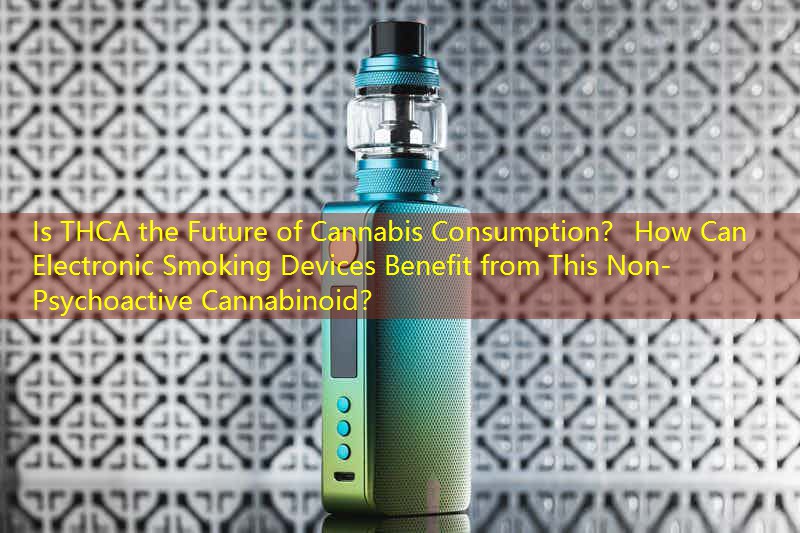Is THCA the Future of Cannabis Consumption? How Can Electronic Smoking Devices Benefit from This Non-Psychoactive Cannabinoid?
Understanding THCA: The New Buzz in the Cannabis World
As cannabis continues to evolve in its use and application, there is a buzzword that has caught the attention of both enthusiasts and casual users alike: THCA. But what is THCA, and why is it becoming increasingly significant in discussions about cannabis? In this article, we will delve deeper into THCA, its properties, differences from THC, and its implications in the realm of cannabis consumption, particularly in electronic smoking devices.
What is THCA?
THCA, or Tetrahydrocannabinolic Acid, is one of the many cannabinoids found in the cannabis plant. It is the acidic precursor to THC (Tetrahydrocannabinol), the compound that is most commonly associated with the psychoactive effects of cannabis. While THC is known for inducing euphoria and a sense of “high,” THCA does not produce these effects in its raw form. This is because THCA must be decarboxylated—typically through heat—to convert into THC that can affect the user’s mind and body.
The Benefits of THCA
Research into THCA is still in its nascent stages, but preliminary studies have suggested various potential benefits. These advantages include:
– Anti-inflammatory properties: Early research has indicated that THCA may help reduce inflammation, making it of interest for those with autoimmune diseases.
– Neuroprotective effects: Some studies suggest that THCA may help in protecting brain cells, thus potentially benefiting conditions such as Parkinson’s disease.
– Antiemetic qualities: THCA may reduce nausea and vomiting, which can be beneficial for patients undergoing treatments like chemotherapy.
Differences Between THCA and THC
Understanding the differences between THCA and THC is essential for both consumers and those involved in the cannabis industry. Here’s a table to summarize the key distinctions:
| Aspect | THCA | THC |
|---|---|---|
| Decarboxylation | Raw form, non-psychoactive | Requires heat for activation, psychoactive |
| Medicinal use | Potential anti-inflammatory, neuroprotective | Pain relief, appetite stimulation |
| Legality | Often legal in raw cannabis forms | Dependent on region |

How to Consume THCA
THCA can be consumed in various forms, particularly through raw cannabis products. For users looking to incorporate THCA into their routine, options include:

– Raw cannabis juice: Extracting juice from raw cannabis leaves can provide high levels of THCA without any psychoactive effects.
– Cold-pressed oils: These can retain the cannabinoids without subjecting them to heat.
– Edibles: When made from raw cannabis, these can also offer THCA benefits.
As more manufacturers explore how to infuse THCA into electronic smoking devices, the landscape of cannabis consumption may significantly evolve.
Common Questions About THCA
Is THCA legal?
THCA is generally considered legal, especially when found in raw cannabis products. However, legality can vary based on specific regulations in different regions, so it’s essential to check local laws.
Can THCA get you high?
No, THCA will not produce a psychoactive effect as it needs to be converted to THC through heat. Therefore, using raw cannabis products rich in THCA will not result in a “high.”
How does THCA compare to CBD?
While both THCA and CBD are cannabinoids, they serve different purposes. CBD is renowned for its therapeutic properties without the psychoactive effects, while THCA has potential medicinal benefits and does not induce a high unless converted to THC.
In conclusion, as the world of cannabis continues to grow and diversify, understanding components like THCA is crucial for users seeking alternative benefits and methods of consumption. With the rise of electronic smoking devices, THCA could play a pivotal role in shaping future cannabis products. Stay informed as the landscape of cannabis evolves and new opportunities for consumption emerge.





